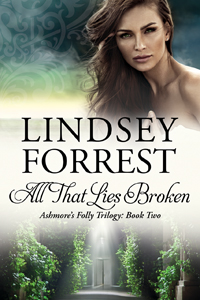Outtake – Sisters
I decided not to include this short chapter, as it really did not add anything to the action. However, I thought it was a useful exercise in illuminating the relationship between the sisters.
Francie speaks
Family legend has it that, the day before my first birthday, I pointed at Di and spoke my first word: “Bitch.”
Obviously I don’t remember if I actually said it (although I don’t doubt for a second that the concept was already firmly planted in my mind), so I don’t know how everyone reacted. Daddy probably laughed; he always admired a robust spirit and discounted the jealousy and meanness that drove it. Based on what happened between us later, Di stared at me blankly, unaware of the insult, or she slapped my face. And my mother —
I never knew my mother’s reaction to my gratuitous insult. She may not have paid any attention, since she was probably already timing her contractions. Six hours later, just before midnight (to our everlasting disappointment, since it prevented us from having the same birthday), she gave birth to Laurie. And three weeks later, she “fell overboard while boating off Lightpost Bar.” Or so the official story goes.
(What a ridiculous story. What woman with a three-week-old baby goes boating for the hell of it in a threatening storm in October? I mean, honestly, couldn’t Daddy have come up with a better story than that? Did he seriously think anyone would believe him?)
I don’t remember her at all. The only one of us who ever knew her was Di; she was five at the time, and she had been the battlefield over which my parents had fought in the course of their six-year affair. We had a half-sister Lucy, three years older than me and one year behind Diana, who had been dumped in Tidewater Virginia by her mother, whom my father actually married during one of the many times my mother left him. Her acquaintance with her mother was ever briefer than Laurie’s with ours; she was only two weeks old when she was abandoned. Daddy sure could pick women.
I don’t want to talk about my mother. She’s not relevant. I don’t have any feeling that she would have cared about us if she’d lived. We seemed to be inconvenient by-products of her prodigious lust for my father, and if abortion had been legal in Ireland, I doubt any of us would have seen the light of day. I’ve no memory of a mother’s touch – no memory of a lullaby sung, or a gentle hand drawing a blanket over me, so her absence meant nothing to me.
But Di felt it badly, and took it out on me.
“It’s my turn,” she’d hiss if I was loitering in the hall, waiting for my father to finish working at the piano. When I’d dig in my heels and refuse to budge, she’d take advantage of her superior height and shove me quite decisively out of the way.
Or —
I grew to dread it when Daddy would take us out anywhere, his three little cherubs on display. My hair was my curse in life: thick, wild, curly, and indisputably red, and no matter how I worked on it, it always looked like a disaster. “For God’s sake, comb your hair!” Daddy would thunder. “I can’t take you out in public the way you look!” And Diana would pipe up, before I could run away, “I’ll help you, Fran. We’ll use my brush.”
And then she would nearly rip my hair out of my head.
Well, I learned to fight back. Di had pale, delicate skin (the Princess and the Pea was one of the nicer things I ever called her), and I perfected my pinch. Big, black bruises soon dotted her arms, and she knew better than to go crying to Daddy about how I’d tortured her. She knew I’d tell on her, and I knew how to cry just as well as she did.
Daddy knew. Of course he knew. He had X-ray eyes that saw everything that went on, no matter how preoccupied he might be with his latest composition. Occasionally, he punished one of us – me, mostly, since I hadn’t yet learned Di’s subtlety. I don’t think he ever spanked Di, but for a few years I seldom sat down comfortably. I didn’t care. It was worth every swing of his belt to get Di first.
Usually, though, he lined us both before him on the piano bench, and lectured us. I can still remember one such lecture – an autumn afternoon, the gray-white sky behind him shadowing his eyes, and the chill wind seeping through the cracked caulking, and his voice, stern and hard:
“You two spend too much of your time…” Blah, blah, blah. The usual grown-up nonsense about wasting time and energy (meaning his) on our childish squabbles. “I don’t want to see any more of this, Francesca…” Blah, blah, blah. “Diana, you’re too old to be fighting…” And Di cast her eyes down demurely, the perfect picture of repentance. But then:
“You have the right instincts,” he said, and I could tell from the far-away look in his eyes that lecture time was over. “You just don’t use your energy wisely. You both want to win. That’s a good thing. You’ll need ruthlessness, both of you, to get where I want you to be….”
Somehow, Laurie escaped those lectures. She received her own instead, poor thing. Most of my sessions with Daddy occurred because I fought with Di or because sometimes I just didn’t feel like spending my time practicing. Laurie’s sins were different. Laurie was different. And it became crystal clear, early on, that Daddy hadn’t a clue what to do with her.
I’d have thought that perhaps she and Daddy could not even be daughter and father, because God knows my mother doesn’t appear to have been a model of sexual fidelity. But Laurie’s looks saved her from Daddy’s total repudiation of paternity. She and I looked almost exactly alike, and she had Di’s translucent skin, that wonderful porcelain skin that blushed beautifully and showed up nice, healthy, black bruises (not that I ever pinched Laurie – I don’t like to think where she got those bruises). And, of course, we all had his eyes. So Laurie was indeed his daughter, in fact if not in mind.
And in mind was what Daddy cared about. In mind and in spirit. So he ranted and raved at her, and when that didn’t serve to bring her around to his idea of what a perfect operatic star in training should be, he punished her with coldness. For, as charming as Daddy could be when he felt like it, he could be the chilliest, most verbally abusive man anyone could imagine. And Laurie received most of the abuse.
What Laurie learned to do, early on, was tune him out. He’d be sitting there beside her at the piano, drilling her, and if he’d ever bothered to look in her eyes, he would have seen that she had gone away. She daydreamed all the time he was talking to her, so of course she absorbed nothing of what he was saying. And that brought down further punishment. Laurie spent a lot of time exiled to our room, which wasn’t really punishment. She’d sit there on the bed and write in her journal.
Funny, Daddy had such a thing about those journals, and the only one of us who ever really kept one was the one he thought the least of.
So we were quite a family, the four of us. The master of the house, torn between his early monastery training of poverty (we never had much – in fact, I sometimes wonder what would have happened to us if he hadn’t inherited my mother’s small estate) and his lust for perfection in music, in song, and in life. The crown princess, with her ethereal looks and her rotten personality and her ice-cold heart. Me, the rebel, the one destined from the cradle to go wrong in life, and the scullery maid, desperate to stay out of the fray and the competition for Daddy’s heart, off in her own little world.
And into this charming mix, early on, came Richard Ashmore.



